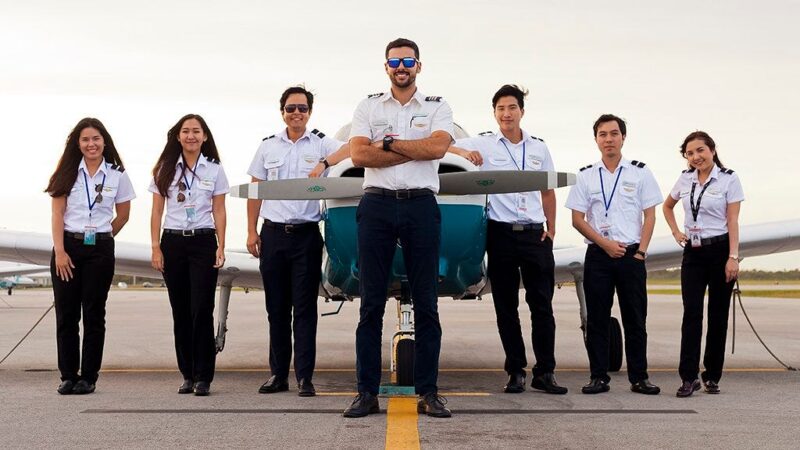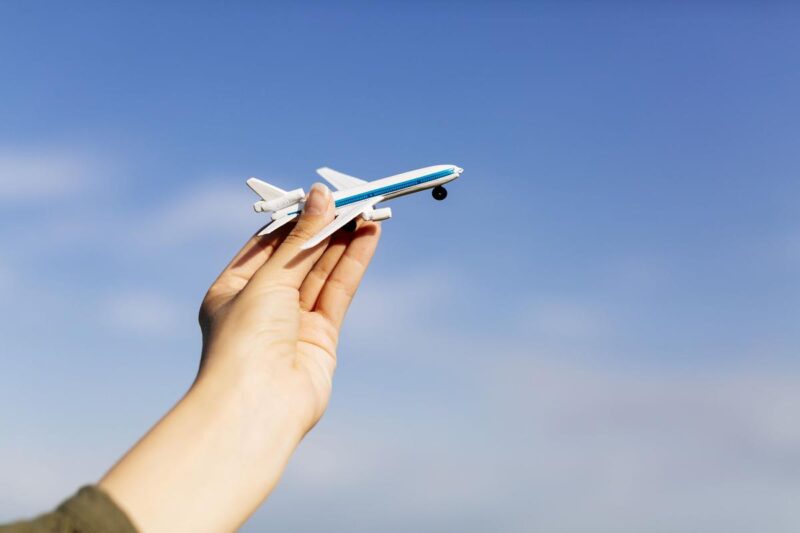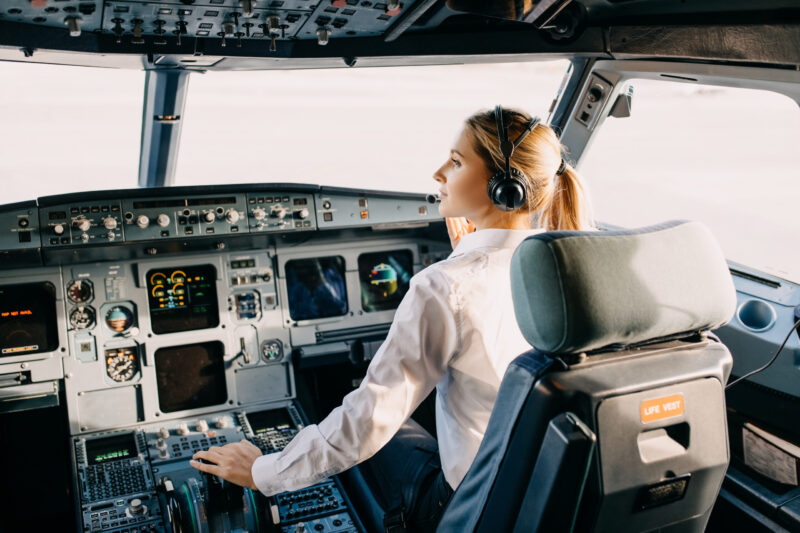The younger generation always faces the hard task of choosing their profession. Choosing your call comes with numerous elements to consider and, of course, with great responsibility. Going through all the possibilities can be a bit tiring, but on the other side, nobody will do it instead of you, right? One of the most common dreams of young people is to become a pilot.
We completely understand the fascination with this profession since not many people have a chance to get into it. However, those who opt for an airline pilot career must be aware of the stages they must go through and the numerous factors surrounding them. That is why we would like to provide our readers with five things everyone wanting to start a career as an airline pilot should know.
1. Find the Right Flight School in USA

The first, and easily the most challenging, step is to find the appropriate flight school. There are many flight schools in the United States, but not all of them provide education and later licenses for commercial flight pilots.
After you narrow down your options by looking for those that provide the right license, the next step is to consider the possibilities and their reputation. Reputation requires attention from many factors, like the capabilities and expertise of the instructors. Furthermore, a reputable school needs a large fleet of training planes.
Simulators must also be considered, especially now that they represent top-notch technology. Fortunately, there are numerous reputable flight schools in the United States, like Wayman Aviation Academy, for you to consider.
2. The Requirements
The next entry will revolve around different requirements for those interested in enrolling in a flight school. The minimum age requirement to start with the education is 17 years. Why is this important to know?
Well, it is quite simple to understand since being 17 means you need to calculate a couple of years you need to undergo before you can finish all the tests and become a full-fledged pilot.
Another thing worth knowing is that some schools prioritize older students. The next factor that plays a massive role is the medical report. Since this job comes with a massive responsibility, the future pilot should be as healthy as possible.
With that in mind, numerous medical tests are run throughout an individual’s education. Both physical and mental health are important in this regard.
Nevertheless, easily the most important thing is eyesight. Having a 20/30 vision, or better, in each eye is a must. Using corrective lenses is not something that will cause too many problems. Adequate hearing is another major factor.
Not having any chronic condition that might affect the performance and quality of the pilot is a must. Finally, the candidate should not have a dependence on alcohol or drugs.
3. Building Flight Experience

Just having a pilot’s license is not enough for an individual to get a job. The next thing that should be done is building flight experience. It is the only way for a beginner to start sharpening the skills needed to become a professional.
There are several ways one can build flight experience. The first one is to rent an aircraft and fly solo for some time before becoming competent enough to take passengers. The next one is becoming a part of a club or an organization that specializes in flights.
Fortunately, these groups are quite active and they tend to organize a lot of events where various people attend and where they can learn numerous things about what they will do in the future, not to mention practice.
These organizations help with building the connections that might be of use in the future when talking someone is looking for a job.
Many future pilots look to build their flight experience through volunteering in numerous events. For instance, you will find organizations need volunteers who will participate in numerous activities such as rescue missions or searches.
All these things will go to the pilot’s credo, which will definitely have an impact on the future. Once again, only a passionate individual can go through these things since he or she is quite challenging.
4. Learning New Languages
Even though it may seem strange to those outside this industry, knowing several languages is quite common among pilots. But think about it: pilots need to know at least a couple of languages so that they can communicate properly with ground control, as well as other pilots.
Keep in mind that the room for error is practically zero. Before an applicant learns foreign languages, he or she will need to learn radio talk.
Radio talk is not a difficult thing to learn. Those who use it consistently will quickly adopt it and will not even think about it as something foreign to them.
With radio talk, there are several rules that everyone should follow. For instance, an individual should always listen before transmitting. Furthermore, thinking carefully about what they will say before they do is a must. The last factor is always being one of the potential failed transmissions.
5. The Lifestyle Changes

The final aspect we want to discuss is changing lifestyle. Why is that? Having an aviation career is fulfilling, but it also comes with a fair share of stress and demands.
We’ve already mentioned that a pilot has a lot of responsibilities. Just one example is working irregular hours and dealing with factors such as weather changes, time zones, and weather changes. All these take a toll on a person.
Traveling frequently is one of those things. An individual who opts for this career will spend a lot of time away from home and may even miss numerous important events shared with friends and family.
Despite all these hardships, people who are willing to commit themselves to their careers will certainly have a rewarding experience. Of course, this will give them enough motivation to move past these challenges.
Summary
There are many things one should be aware of before becoming a pilot. Here, we’ve only named the most visible ones. We are certain that this insight provides enough information for someone considering undergoing this career path.

